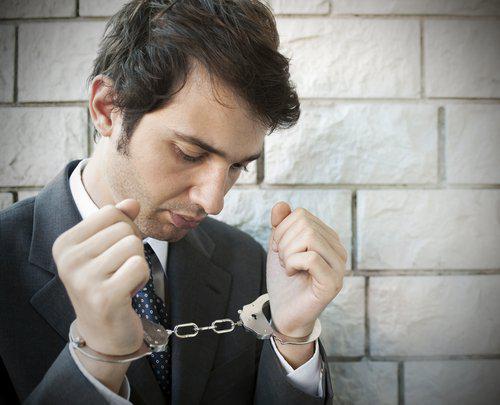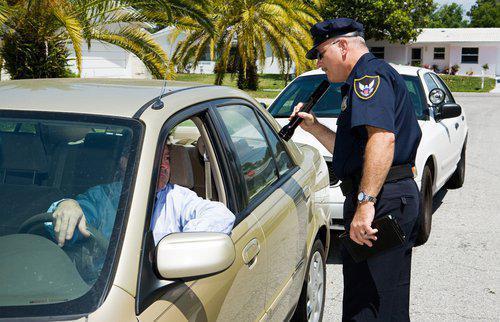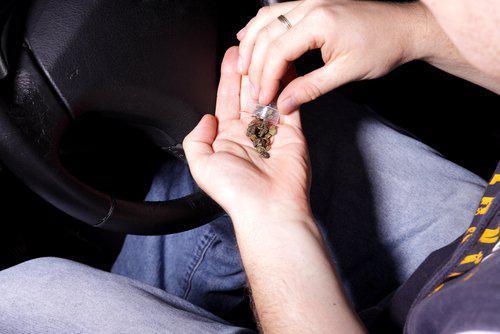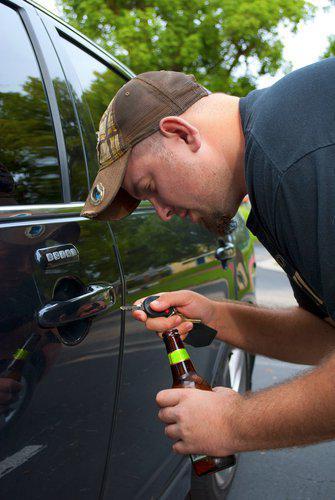Recent Blog Posts
The Crime of Battery in Wisconsin
 Battery is one of the more common crimes prosecuted is Wisconsin. However, just because it is common does not mean that it is trivial. Whether it started as a bar fight, self-defense, or just a momentary lapse, the crime of battery charge can have serious consequences, if it is not handled properly. Consequently, people should understand how Wisconsin Law defines the different levels of battery, along with the potential defenses that may be available to them, which may range from consent by the other side to acting in self-defense.
Battery is one of the more common crimes prosecuted is Wisconsin. However, just because it is common does not mean that it is trivial. Whether it started as a bar fight, self-defense, or just a momentary lapse, the crime of battery charge can have serious consequences, if it is not handled properly. Consequently, people should understand how Wisconsin Law defines the different levels of battery, along with the potential defenses that may be available to them, which may range from consent by the other side to acting in self-defense.
What Constitutes Battery
Although the crime of battery is often discussed as though it were a single crime, there are actually a variety of levels to it under Wisconsin law. The lowest level of battery is simple battery, a Class A misdemeanor that the law defines as intentionally causing bodily harm to another person. The extra levels of battery increase in severity as the harm and the intent behind it get more serious. For instance, if a person causes great bodily harm, but only intends to cause bodily harm, then the crime gets upgraded to a Class H felony, but if the person intended to cause great bodily harm in addition to actually causing it, then the crime is a Class E felony.
Hazing Law in Wisconsin
 Hazing, bullying done to people in order to initiate them into an organization, was once thought of as a bit of harmless fun that helped people build camaraderie. However, it has since become clear to state governments that hazing can actually have serious consequences, and can even result in the death of students when it gets out of hand. As a result, states, including Wisconsin, have passed laws criminalizing hazing. These laws take very different view of what qualifies as hazing and what the penalties can be. It is important for people in positions of authority to understand the Wisconsin law on hazing and the penalties that it imposes.
Hazing, bullying done to people in order to initiate them into an organization, was once thought of as a bit of harmless fun that helped people build camaraderie. However, it has since become clear to state governments that hazing can actually have serious consequences, and can even result in the death of students when it gets out of hand. As a result, states, including Wisconsin, have passed laws criminalizing hazing. These laws take very different view of what qualifies as hazing and what the penalties can be. It is important for people in positions of authority to understand the Wisconsin law on hazing and the penalties that it imposes.
What Hazing Is
Although people may have an intuitive sense of what hazing is, people should understand the long list of actions that can qualify as hazing under Wisconsin's law. The law prohibits any act that intentionally or recklessly puts a student's physical well-being in danger in order to initiate them into an organization. The law also includes an extensive list of examples such as physical brutality like whipping or beating, forced consumption of substances like food or alcohol, or forced confinement. However, the list is merely a set of examples and the law may apply to more than just that conduct.
A Primer on Securities Fraud
 With an ever-growing number of public financial scandals, white collar criminal prosecutions are becoming a larger and larger part of the federal criminal caseload. Although white collar crime is a broad umbrella that can implicate many different kinds of activity, one of the most common white collar crimes is securities fraud. However, referring to securities fraud as a single crime is somewhat misleading. The statute that covers it actually uses it as an umbrella term for different types of fraud related to financial instruments. Two of the most important types of securities fraud are the misrepresentation of material information related to the security and insider trading.
With an ever-growing number of public financial scandals, white collar criminal prosecutions are becoming a larger and larger part of the federal criminal caseload. Although white collar crime is a broad umbrella that can implicate many different kinds of activity, one of the most common white collar crimes is securities fraud. However, referring to securities fraud as a single crime is somewhat misleading. The statute that covers it actually uses it as an umbrella term for different types of fraud related to financial instruments. Two of the most important types of securities fraud are the misrepresentation of material information related to the security and insider trading.
Material Misrepresentations
One of the most common types of securities fraud is through material misrepresentations. The securities law makes it a federal crime to be dishonest about facts about a company that would be important to investors. Both people inside and outside of a company can run afoul of this law. From within the company, one of the most common ways to do it is through falsified filings. For instance, if a company inflates its earnings, reporting them as being higher than they actually are, then they could be charged with securities fraud, especially if the company later enters bankruptcy despite reporting strong profits.
The Blunt Facts about Drug Charges
 Throughout the United States, each state has enacted laws that make it unlawful to possess, distribute or manufacture illegal drugs. These substances include marijuana, cocaine, heroin, methamphetamines, and various other drugs. Also, an individual could be charged with drug distribution if he or she is engaged in the illegal distribution of prescription drugs, the most common being painkillers or sleeping pills. The punishment for possession is much more lenient than that of distribution or manufacturing. These punishments depend on a variety of factors, such as the type and amount of drug, geographic area and groups targeted for the distribution of illegal drugs. The terms of punishment can range from a couple of years in prison to life imprisonment.
Possession of a small amount of a drug, such as marijuana, is usually only a misdemeanor. However, charges related to drug trafficking, distribution and manufacturing are commonly considered felonies and lead to more serious fines and prison time. If you are found in possession of a substantial amount of drugs, there is a possibility you could be charged with intent to distribute if the police believe you were in a position to sell them to other people. This is also true if you are found with a limited amount of drugs and a significant amount of cash.
If you are facing charges related to drug trafficking, it is important to remember that state and federal laws almost always come into play. Most state laws are modeled after federal laws and there are mandatory minimum punishments depending on the type and amount of drug involved. Although lawmakers passed these harsh laws to deter major drug distributors, petty drug dealers are too often the ones to be prosecuted.
Drug-Related Arrests in Wisconsin
According to the Wisconsin Department of Justice, there were a total of 340,893 arrests across the state in 2012 (See “Arrests in Wisconsin 2012”). Drug arrests accounted for 27,345, and 83 percent of these arrests were related to possession charges. A first-time offense related to the possession of marijuana carries a $1,000 fine and possibility of six months in prison. A list of substances regulated by the state of Wisconsin can be found here and felony classifications can be found here.
Depending on the circumstances of your case, the state or federal prosecutor can determine whether or not you had the intent to sell or manufacture illegal drugs. The typical indicators are amount of drug, type of drug, geographical location, and presence of distribution paraphernalia (baggies, scales, etc).
Let Our Attorneys Defend You in Your Case
The possible punishments, regardless of the drug trafficking charges, are far too serious to consider taking care of on your own. You should contact an experienced Milwaukee criminal defense attorney to help you fight the charges every step of the way.
Throughout the United States, each state has enacted laws that make it unlawful to possess, distribute or manufacture illegal drugs. These substances include marijuana, cocaine, heroin, methamphetamines, and various other drugs. Also, an individual could be charged with drug distribution if he or she is engaged in the illegal distribution of prescription drugs, the most common being painkillers or sleeping pills. The punishment for possession is much more lenient than that of distribution or manufacturing. These punishments depend on a variety of factors, such as the type and amount of drug, geographic area and groups targeted for the distribution of illegal drugs. The terms of punishment can range from a couple of years in prison to life imprisonment.
Possession of a small amount of a drug, such as marijuana, is usually only a misdemeanor. However, charges related to drug trafficking, distribution and manufacturing are commonly considered felonies and lead to more serious fines and prison time. If you are found in possession of a substantial amount of drugs, there is a possibility you could be charged with intent to distribute if the police believe you were in a position to sell them to other people. This is also true if you are found with a limited amount of drugs and a significant amount of cash.
If you are facing charges related to drug trafficking, it is important to remember that state and federal laws almost always come into play. Most state laws are modeled after federal laws and there are mandatory minimum punishments depending on the type and amount of drug involved. Although lawmakers passed these harsh laws to deter major drug distributors, petty drug dealers are too often the ones to be prosecuted.
Drug-Related Arrests in Wisconsin
According to the Wisconsin Department of Justice, there were a total of 340,893 arrests across the state in 2012 (See “Arrests in Wisconsin 2012”). Drug arrests accounted for 27,345, and 83 percent of these arrests were related to possession charges. A first-time offense related to the possession of marijuana carries a $1,000 fine and possibility of six months in prison. A list of substances regulated by the state of Wisconsin can be found here and felony classifications can be found here.
Depending on the circumstances of your case, the state or federal prosecutor can determine whether or not you had the intent to sell or manufacture illegal drugs. The typical indicators are amount of drug, type of drug, geographical location, and presence of distribution paraphernalia (baggies, scales, etc).
Let Our Attorneys Defend You in Your Case
The possible punishments, regardless of the drug trafficking charges, are far too serious to consider taking care of on your own. You should contact an experienced Milwaukee criminal defense attorney to help you fight the charges every step of the way.
Child Pornography Charges in the Digital Age
 In recent years, law enforcement agencies across the United States and in Wisconsin have relentlessly pursued producers, possessors and distributors of child pornography. Individuals caught and charged with the sexual exploitation of children or possession and/or distribution of child pornography could potentially be prosecuted under state or federal laws, or even both.
In recent years, law enforcement agencies across the United States and in Wisconsin have relentlessly pursued producers, possessors and distributors of child pornography. Individuals caught and charged with the sexual exploitation of children or possession and/or distribution of child pornography could potentially be prosecuted under state or federal laws, or even both.
Between 1996 and 2005, the Federal Bureau of Investigation reported that the amount of child pornography and sexual exploitation cases opened by the agency skyrocketed from 114 to 2,402, and arrests related to these charges per year increased from 68 in 1996 to 1,649 in 2005. Within this 10-year period alone, the amount of cases opened and arrests made by the Federal Bureau of Investigation increased over 2,000 percent.
Penalties for Child Pornography
Under federal law, a first time offense of production of child pornography is a felony, which carries a 15-year minimum sentence up to a maximum of 25 years in prison. But a first-time offense of possession of child pornography is a felony and only carries a three-year mandatory minimum, up to a 20-year maximum, while distribution carries a five-year mandatory minimum. A second offense in either one of these categories of charges essentially doubles the maximum possible sentence. In Wisconsin, possession of child pornography is a class D felony, which carries a maximum 25-year sentence, with a fine up to $100,000, or both. The production of child pornography or the sexual exploitation of children is a Class C felony, which carries a maximum 40-year sentence and up to $100,000 fine, or both.
Understanding Your Fourth Amendment Rights
 Legal disputes over the admissibility of evidence seem like they have the potential to be quite dry, but in reality they can make all the difference in the outcome of a case. For instance, if a person is charged with possession of a controlled substance, the prosecution will have a difficult time proving their case if the judge prevents them from actually introducing the drugs to the jury.
In the criminal context, one of the most important rules related to the admissibility of evidence comes from the Fourth Amendment. The Fourth Amendment protects citizens from “unreasonable” searches. Importantly, if a police officer finds evidence as a result of a search that the court considers unreasonable, then the prosecutor cannot use that evidence in the trial as a punishment for violating the defendant's rights.
Police and Warrants
The general rule about whether a search is reasonable is whether it was executed pursuant to a valid warrant. Warrants are legal documents that empower the police to perform a search. The police get warrants by going before the judge, and presenting evidence that there is probable cause to believe that a search will turn up further evidence of criminal activity.
The mere existence of a warrant does not make all searches valid. For instance, warrants are limited to searching specific premises for specific items. If the police exceed the boundaries of the warrant, then the search may be deemed unreasonable. Similarly, warrants are only good for a limited amount of time. Police are not allowed to seek warrants and then store them indefinitely to use as needed. Searches executed under an outdated warrant may also be considered unreasonable.
Exceptions to the Warrant Rule
Importantly, the rule that police need a warrant to perform a search is subject to a variety of exceptions. One of the most important exceptions is for vehicles. It would be impractical to always force police to seek a warrant during a traffic stop, so the law allows police to use their own judgment. If the police believe that there is probable cause to perform a search, then they may search a vehicle over the driver's objections. However, if that search turns up evidence of a crime, the judge at trial will have to determine whether the officer actually had probable cause.
Another important exception to the warrant rule is one of consent. Police officers are allowed to ask for permission to perform searches of people or their property. People are under no obligation to consent to these searches, but if they do consent, they lose the authority to later contest the reasonableness of the search.
The law provides a variety of protections to ensure that people accused of crimes do not have their rights violated. If you are facing criminal charges, and want to learn more about these protections, contact an experienced Milwaukee criminal defense lawyer today.
Legal disputes over the admissibility of evidence seem like they have the potential to be quite dry, but in reality they can make all the difference in the outcome of a case. For instance, if a person is charged with possession of a controlled substance, the prosecution will have a difficult time proving their case if the judge prevents them from actually introducing the drugs to the jury.
In the criminal context, one of the most important rules related to the admissibility of evidence comes from the Fourth Amendment. The Fourth Amendment protects citizens from “unreasonable” searches. Importantly, if a police officer finds evidence as a result of a search that the court considers unreasonable, then the prosecutor cannot use that evidence in the trial as a punishment for violating the defendant's rights.
Police and Warrants
The general rule about whether a search is reasonable is whether it was executed pursuant to a valid warrant. Warrants are legal documents that empower the police to perform a search. The police get warrants by going before the judge, and presenting evidence that there is probable cause to believe that a search will turn up further evidence of criminal activity.
The mere existence of a warrant does not make all searches valid. For instance, warrants are limited to searching specific premises for specific items. If the police exceed the boundaries of the warrant, then the search may be deemed unreasonable. Similarly, warrants are only good for a limited amount of time. Police are not allowed to seek warrants and then store them indefinitely to use as needed. Searches executed under an outdated warrant may also be considered unreasonable.
Exceptions to the Warrant Rule
Importantly, the rule that police need a warrant to perform a search is subject to a variety of exceptions. One of the most important exceptions is for vehicles. It would be impractical to always force police to seek a warrant during a traffic stop, so the law allows police to use their own judgment. If the police believe that there is probable cause to perform a search, then they may search a vehicle over the driver's objections. However, if that search turns up evidence of a crime, the judge at trial will have to determine whether the officer actually had probable cause.
Another important exception to the warrant rule is one of consent. Police officers are allowed to ask for permission to perform searches of people or their property. People are under no obligation to consent to these searches, but if they do consent, they lose the authority to later contest the reasonableness of the search.
The law provides a variety of protections to ensure that people accused of crimes do not have their rights violated. If you are facing criminal charges, and want to learn more about these protections, contact an experienced Milwaukee criminal defense lawyer today.
Companies Developing Marijuana Breathalyzers
 One of the biggest political controversies across the country today is the creeping legalization of marijuana. Many states have legalized marijuana for certain medical uses, and some have even gone so far as to legalize it for recreational use. This spate of legalizations presents a new issue, the likely increase in people driving under the influence of marijuana. In order to deal with this, both companies and universities are attempting to develop and commercialize marijuana breathalyzers for use by police forces. These breathalyzers have the potential to make enforcement of OWI laws more objective and scientific, but there are also some issues with their introduction.
Potential Benefits
The major benefit of these breathalyzers would be their objectivity. Right now, police officers are mainly forced to rely on their judgment to determine if a person is driving while under the influence of marijuana. They have to look for things like bloodshot eyes, failure of field sobriety tests, the smell of marijuana, and the presence of drug paraphernalia. While some of these may be strong indicators of an OWI, a person with bloodshot eyes who fails a field sobriety test could also simply be suffering from fatigue. The only way to be sure is to then bring the person back to the station to test their blood or urine for the presence of marijuana.
These marijuana breathalyzers could change that. They could provide police with a convenient way to test for marijuana, and determine if it was worth bringing the person back to the station for a more thorough test. This could also benefit drivers since it would make it less likely for police to bring people back to the police station based on inaccurate suspicions.
Possible Concerns
However, there is also a good reason to be concerned about these new breathalyzers, particularly in Wisconsin. Wisconsin is known as a “zero tolerance” state for marijuana OWIs. This means that any detectable amount of marijuana in a person's system is enough to justify an OWI conviction. This could make marijuana breathalyzers a serious problem because they could lead to an over-enforcement of OWI laws.
There is a big difference between having a detectable amount of marijuana in a person's system and having their driving impaired by the marijuana. Marijuana can be detectable for days or weeks following the use. This means that a person could come from a state where the use of marijuana is legal, and then be successfully charged with “impaired” driving weeks later. Consequently, the use of marijuana breathalyzers may require a change to Wisconsin's OWI laws.
OWI charges can result in serious penalties, especially for repeat offenders. If you have been charged with an OWI and want to learn about your options, contact a skilled Milwaukee criminal defense attorney today.
One of the biggest political controversies across the country today is the creeping legalization of marijuana. Many states have legalized marijuana for certain medical uses, and some have even gone so far as to legalize it for recreational use. This spate of legalizations presents a new issue, the likely increase in people driving under the influence of marijuana. In order to deal with this, both companies and universities are attempting to develop and commercialize marijuana breathalyzers for use by police forces. These breathalyzers have the potential to make enforcement of OWI laws more objective and scientific, but there are also some issues with their introduction.
Potential Benefits
The major benefit of these breathalyzers would be their objectivity. Right now, police officers are mainly forced to rely on their judgment to determine if a person is driving while under the influence of marijuana. They have to look for things like bloodshot eyes, failure of field sobriety tests, the smell of marijuana, and the presence of drug paraphernalia. While some of these may be strong indicators of an OWI, a person with bloodshot eyes who fails a field sobriety test could also simply be suffering from fatigue. The only way to be sure is to then bring the person back to the station to test their blood or urine for the presence of marijuana.
These marijuana breathalyzers could change that. They could provide police with a convenient way to test for marijuana, and determine if it was worth bringing the person back to the station for a more thorough test. This could also benefit drivers since it would make it less likely for police to bring people back to the police station based on inaccurate suspicions.
Possible Concerns
However, there is also a good reason to be concerned about these new breathalyzers, particularly in Wisconsin. Wisconsin is known as a “zero tolerance” state for marijuana OWIs. This means that any detectable amount of marijuana in a person's system is enough to justify an OWI conviction. This could make marijuana breathalyzers a serious problem because they could lead to an over-enforcement of OWI laws.
There is a big difference between having a detectable amount of marijuana in a person's system and having their driving impaired by the marijuana. Marijuana can be detectable for days or weeks following the use. This means that a person could come from a state where the use of marijuana is legal, and then be successfully charged with “impaired” driving weeks later. Consequently, the use of marijuana breathalyzers may require a change to Wisconsin's OWI laws.
OWI charges can result in serious penalties, especially for repeat offenders. If you have been charged with an OWI and want to learn about your options, contact a skilled Milwaukee criminal defense attorney today.
Expungement in Wisconsin
 One of the most difficult parts of a criminal conviction is the continuing existence of a criminal record. Long after people have served their time and reformed themselves, they can still find their criminal record holding them back, preventing them from getting work, housing, or state licensing. Wisconsin law does allow for people to have their criminal records expunged in certain circumstances. However, it is important to note that Wisconsin's laws on expungement are particularly harsh. They do not provide as many benefits as some states' laws do, and they can also only be accessed for a limited number of reasons.
One of the most difficult parts of a criminal conviction is the continuing existence of a criminal record. Long after people have served their time and reformed themselves, they can still find their criminal record holding them back, preventing them from getting work, housing, or state licensing. Wisconsin law does allow for people to have their criminal records expunged in certain circumstances. However, it is important to note that Wisconsin's laws on expungement are particularly harsh. They do not provide as many benefits as some states' laws do, and they can also only be accessed for a limited number of reasons.
How Expungement Works
Expungements in Wisconsin are available to only a limited group of people, usually those who committed their crimes as juveniles or young adults. In order to qualify for an expungement, a person must meet four criteria. First, they must have committed the crime while they were under the age of 25. Second, the crime must be a misdemeanor or certain low-level, non-violent felonies. Third, the person must have successfully completed their sentence, which includes things like complying with the terms of probation following a release from prison. Fourth, the court must determine that the offender stands to benefit from an expungement and that such an expungement would not go against the public interest.
Strategies for Beating an OWI
 OWIs can be serious charges that come with expensive penalties, especially for people who have prior OWIs on their records. Many people risk driving drunk because they think they will not get caught. Yet, there are tens of thousands of OWI convictions every year, according to statistics compiled by the Wisconsin Department of Transportation. Consequently, people should be aware of the different strategies Wisconsin OWI attorneys can use to fight an OWI conviction after the charges occur. These strategies include taking advantage of the burden of proof, fighting to exclude evidence, and contesting evidence that cannot be excluded.
OWIs can be serious charges that come with expensive penalties, especially for people who have prior OWIs on their records. Many people risk driving drunk because they think they will not get caught. Yet, there are tens of thousands of OWI convictions every year, according to statistics compiled by the Wisconsin Department of Transportation. Consequently, people should be aware of the different strategies Wisconsin OWI attorneys can use to fight an OWI conviction after the charges occur. These strategies include taking advantage of the burden of proof, fighting to exclude evidence, and contesting evidence that cannot be excluded.
The Burden of Proof
One key point to understand about the criminal justice system is that the burden of proof rests on the prosecution. This leads to the often recited line that people are innocent until proven guilty. In a practical sense, this means that it is the job of the prosecutor to prove the case, not the person's OWI defense attorney. This is an important strategic point. A person accused of an OWI does not need to prove they were sober. They merely need to knock out key portions of the case against them that would prove drunk driving.
The Entrapment Defense in Wisconsin
 Many legal and police-based TV shows raise the issue of an “entrapment” defense at some point during their run, but the defense is often not as simple as those shows imply. The entrapment defense is an argument available to criminal defendants that the police tricked them into committing a crime that they would not have otherwise committed. The defense arises most often in cases where the defendant was caught by an undercover officer, such as in prostitution stings or undercover drug buys. However, proving entrapment as a defense requires more than just showing that the officer deceived the defendant in some way.
Many legal and police-based TV shows raise the issue of an “entrapment” defense at some point during their run, but the defense is often not as simple as those shows imply. The entrapment defense is an argument available to criminal defendants that the police tricked them into committing a crime that they would not have otherwise committed. The defense arises most often in cases where the defendant was caught by an undercover officer, such as in prostitution stings or undercover drug buys. However, proving entrapment as a defense requires more than just showing that the officer deceived the defendant in some way.
Proving Entrapment
The important thing to understand about entrapment is that it is a high bar to meet. Mere deception on the part of the police is not enough, and neither is simply providing the defendant with the opportunity to commit a crime that they would have otherwise committed. Instead, the defendant has to show that the police somehow induced them to commit a crime they would not have engaged in without police interference. Undercover drug sales make a good example for showing the distinction between providing an opportunity and inducing the crime.







